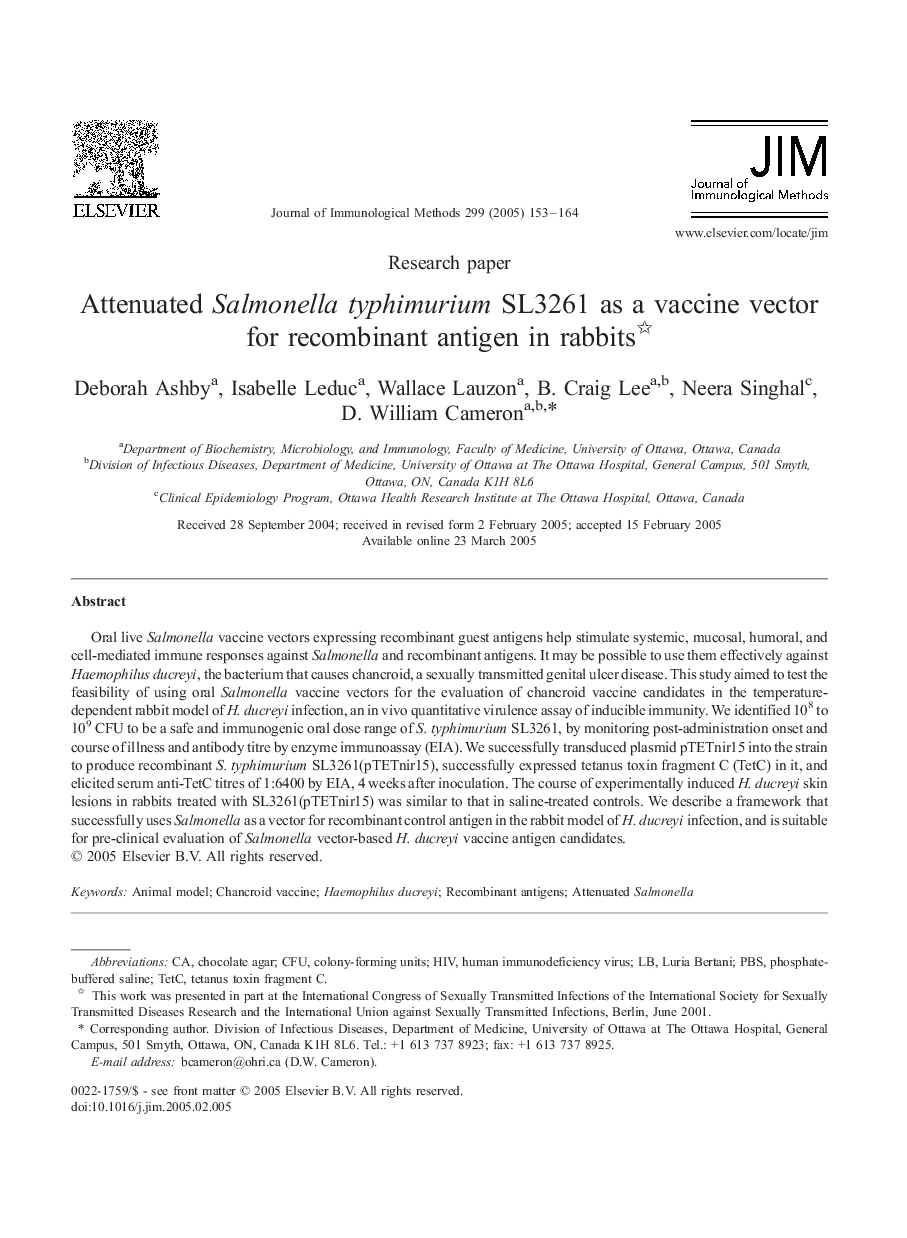| Article ID | Journal | Published Year | Pages | File Type |
|---|---|---|---|---|
| 9902339 | Journal of Immunological Methods | 2005 | 12 Pages |
Abstract
Oral live Salmonella vaccine vectors expressing recombinant guest antigens help stimulate systemic, mucosal, humoral, and cell-mediated immune responses against Salmonella and recombinant antigens. It may be possible to use them effectively against Haemophilus ducreyi, the bacterium that causes chancroid, a sexually transmitted genital ulcer disease. This study aimed to test the feasibility of using oral Salmonella vaccine vectors for the evaluation of chancroid vaccine candidates in the temperature-dependent rabbit model of H. ducreyi infection, an in vivo quantitative virulence assay of inducible immunity. We identified 108 to 109 CFU to be a safe and immunogenic oral dose range of S. typhimurium SL3261, by monitoring post-administration onset and course of illness and antibody titre by enzyme immunoassay (EIA). We successfully transduced plasmid pTETnir15 into the strain to produce recombinant S. typhimurium SL3261(pTETnir15), successfully expressed tetanus toxin fragment C (TetC) in it, and elicited serum anti-TetC titres of 1:6400 by EIA, 4 weeks after inoculation. The course of experimentally induced H. ducreyi skin lesions in rabbits treated with SL3261(pTETnir15) was similar to that in saline-treated controls. We describe a framework that successfully uses Salmonella as a vector for recombinant control antigen in the rabbit model of H. ducreyi infection, and is suitable for pre-clinical evaluation of Salmonella vector-based H. ducreyi vaccine antigen candidates.
Keywords
Related Topics
Life Sciences
Biochemistry, Genetics and Molecular Biology
Biotechnology
Authors
Deborah Ashby, Isabelle Leduc, Wallace Lauzon, B. Craig Lee, Neera Singhal, D. William Cameron,
